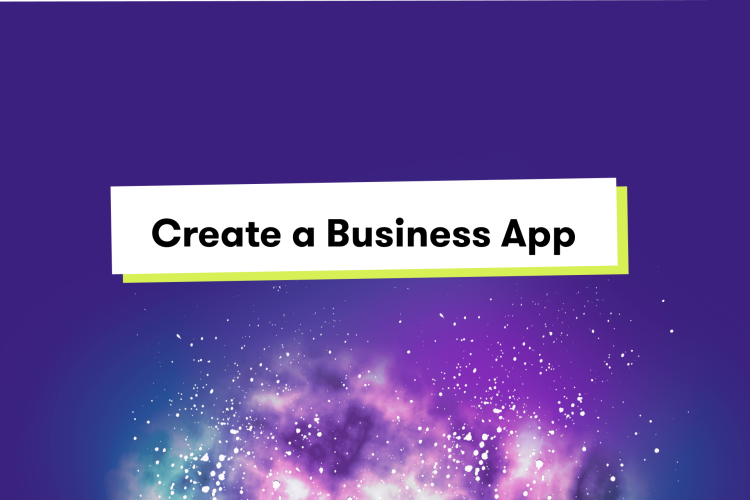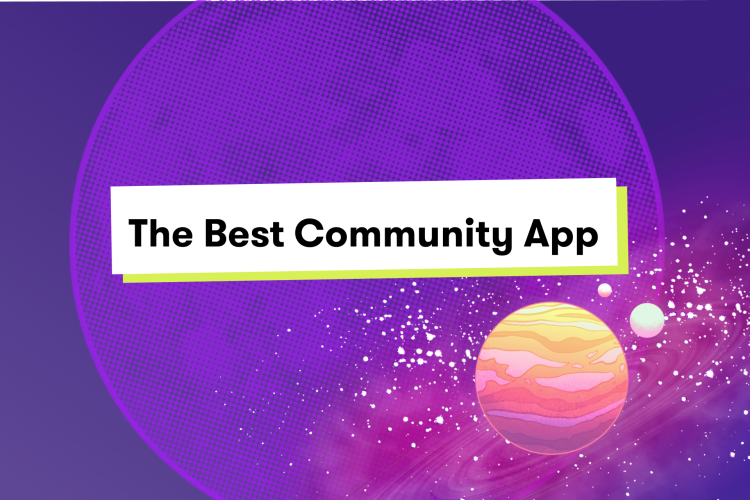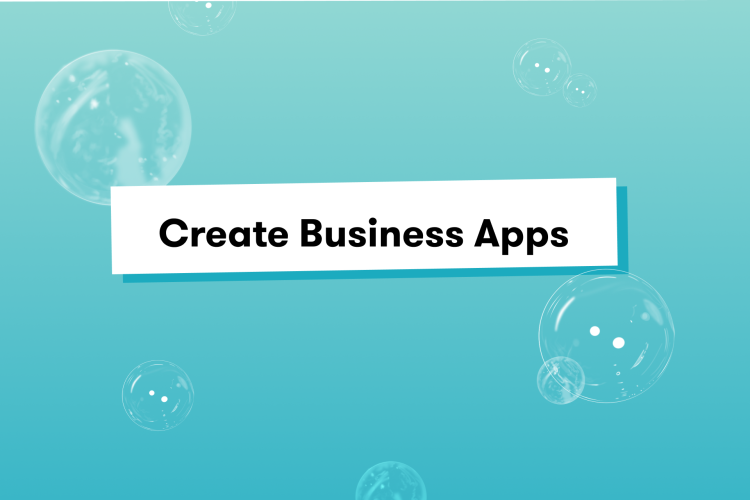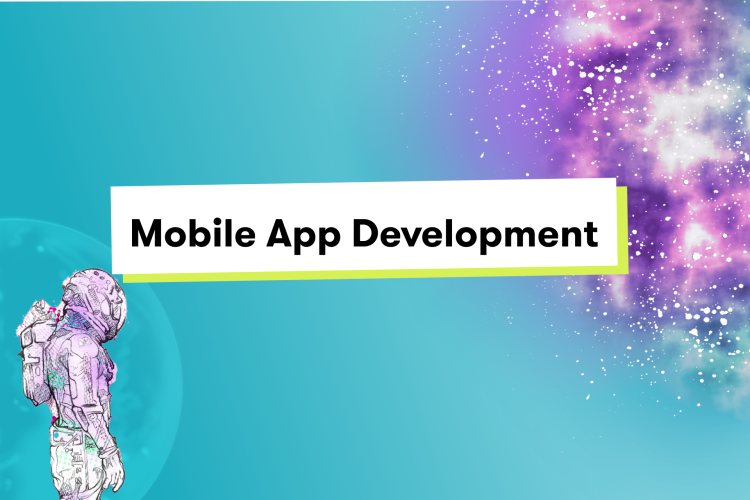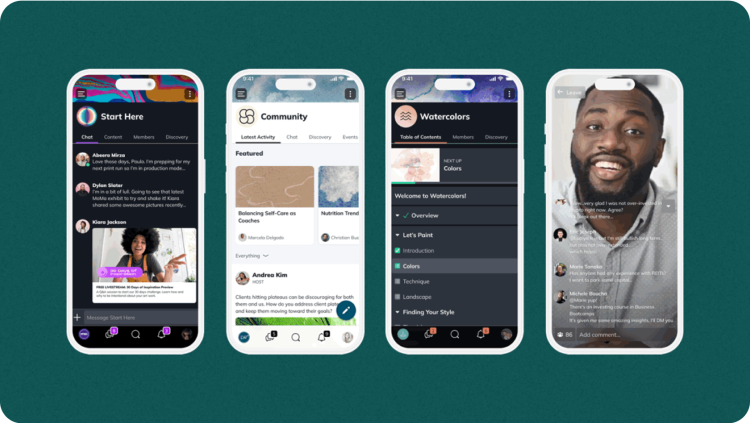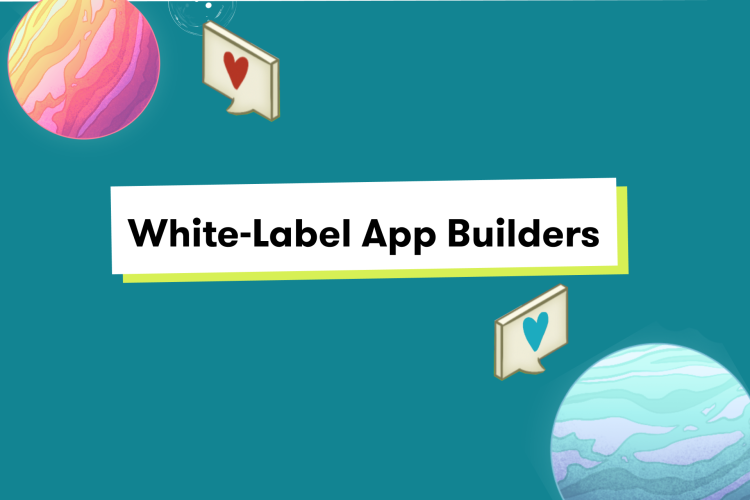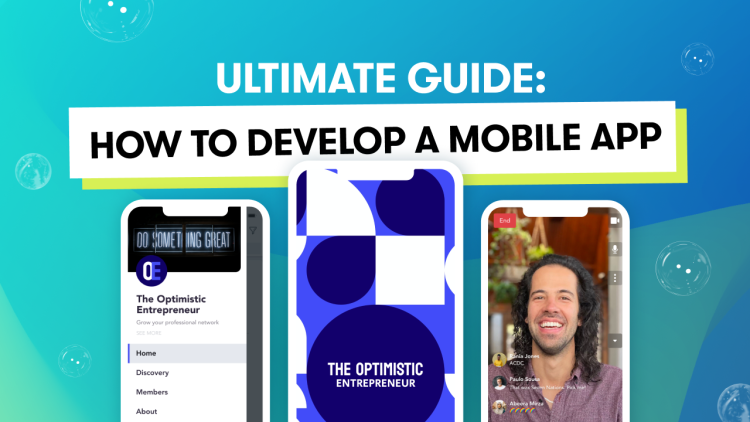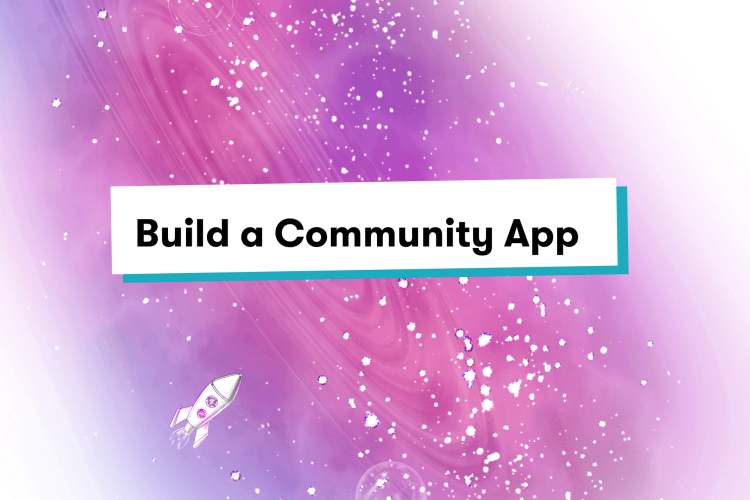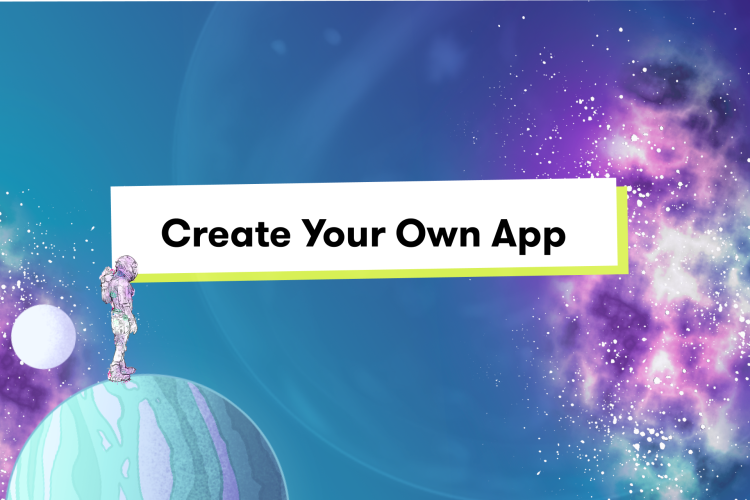Branded Apps
4 Fitness App Development Company Options for 2025
If you’re looking to launch a fitness app, these 4 fitness app development companies have something for every business!
Author
Mighty Team
Last Updated
February 6, 2025

Table of Contents
In this article
It's no secret that technology has completely transformed the fitness world. From Peloton to YouTube trainers to FitBit and everything in between, tech is changing how we get fit. And the amount of tech solutions you can bring to your fitness business makes it easier than ever to get to profitability–whether you want clients in your hometown or across the globe.
Apps are obviously an essential part of this. For your customers, having access to fitness training in the palm of their hand makes working out accessible, but it also adds in much-needed accountability.
But software and apps can be intimidating for fitness instructors, who end up lost in the details and not having time to spend on their clients. We’re meeting more and more fitness business owners who are running profitable businesses, but drowning in the tech complexity, mixing platforms together, and struggling to scale with their existing software.
Whether this is you, or you’re just getting started running a fitness business, this post will walk you through some of the different fitness app development company options to help you find one that fits your needs. We’ll show you how to get a powerful fitness app under your brand that will help you rapidly scale and simplify at the same time.
Ready?
What is a fitness app development company?
A fitness app development company builds fitness apps (surprise!). There are a select few that specialize TOTALLY in fitness apps.
Most fitness app development companies will work on other types of apps too, but have extensive and demonstrated experience developing apps for different fitness applications. These could include things like community-building, courses and personal training, or gym membership management.
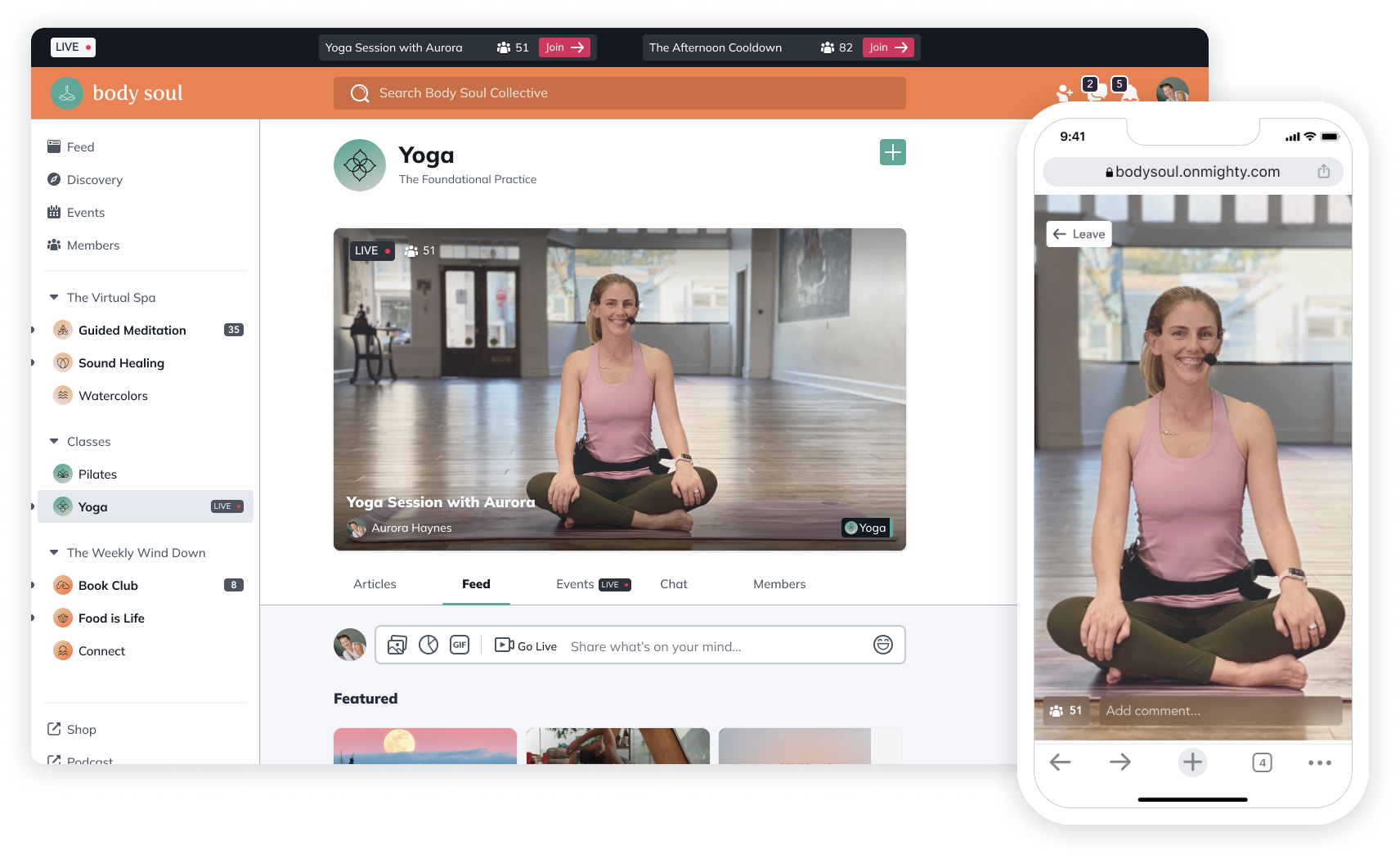
Are you ready to develop your own fitness app?
It can be hard to know exactly when you’re ready to develop your own fitness app. When we work with fitness instructors, there are a few pain points we see again and again that tell us YOU NEED A CUSTOM APP!
Here’s what they are:
You have an existing business or client base, paying customers–or at least a reasonable expectation of profitability to make it worth the investment.
You are cobbling together a WHOLE BUNCH OF PLATFORMS to try to serve your offerings. A lot of the people we meet are trying to juggle WordPress sites with a Facebook Group with a third-party course platform, and who knows what else.
Your customer experience is struggling from platform bloat–and it feels unprofessional to have your customers jumping from platform to platform.
Your engagement isn’t working. Platforms like Facebook are preventing you from reaching your members.
You want to scale and simplify your business at the same time.
If you answered yes to one or more of these, it’s probably time to develop your own fitness app!
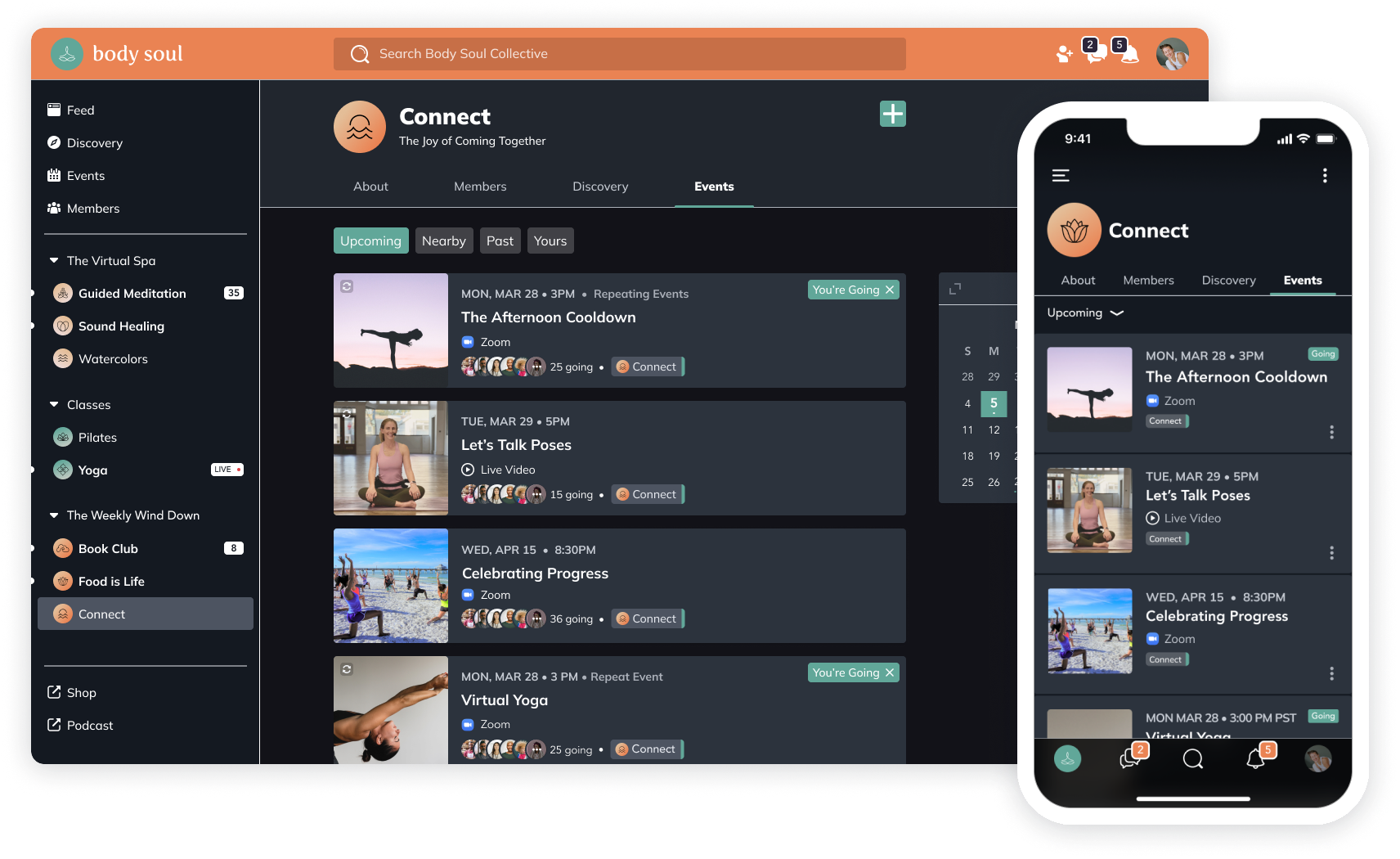
What to look for in a fitness app development company?
1. Development style
The first thing you want to look for in a fitness app development company is the development style. There are two basic development styles: white-label development and total custom development.
With a white-label solution, you are working with a proven solution that you deploy under your own brand.
The advantage of white-label development is that you can get a high-quality app for a fraction of the price of custom development. Just like with custom development, the white-label company will work with you, helping bring your brand and ideas to life. Because white-label companies have a lot of experience building apps, you get the benefit of their knowledge and expertise as well.
There are white-label companies that cover most needs. For a fitness app, you probably need a set of tools: things like video lessons, event tracking, one-on-one or group coaching, messaging, discussion, courses, etc. We’ll dive into this more below.
The only downside is that white-label development isn't as customizable as complete development from scratch. With a totally-custom app development company, you are starting from scratch. The advantage of this is that you can have a highly customized app. Design anything you can imagine.
But the disadvantage is that it's way more expensive, with months of building, testing, and applying, and you'll need long-term support in case you have any issues.
White Label
Advantages
Proven solutions
Long-term support
Cheaper to build
Disadvantages
Not completely custom
Custom Development
Advantages
Total custom development
Build in any features you want
Disadvantages
Expensive
Generally no long-term support (without extra costs)
Less experience with your use case
2. Experience
With this level of intricacy, you can't afford to have an app company mess it up. No matter what development style you choose, make sure you find a company that has experience building the type of fitness apps you want. We’ll cover some of this below, but make sure to ask about experience when you meet with a fitness app development company.
Look for testimonials and examples of apps that they've built. You can even contact former customers to see what the experience was like.
3. Support
Any fitness app development company should support you through the entire journey of getting your app launched.
For example, just because you get somebody to develop your app, the work isn't over.
How do you get it into the Apple and Google Play stores?
What happens if your customers face technical issues?
How do you know what's working and what isn't?
What if you want to change a feature or add a new one?
Chances are, you're getting into a long-term relationship with the fitness app development company. So make sure you have one that offers the level of support you need.
4. Features
Finally, when looking for a fitness app development company, you should think about the features you need. This is especially true with white-label development, but it works across the board.
You should have a sense of what features you want in your app, and make sure your company can handle developing them.
Here are a few common features of fitness apps:
Video lessons
Community forums
Private groups for premium and group coaching
Landing pages and marketing material
Event scheduling and hosting
Live streaming
Accountability tracking
A calendar or scheduling
GPS location (e.g. for a running app)
SSO options
Payment gateway
The option to sell memberships, bundles, etc.
Make a list of the features you need, thinking through how you run your business and what's going to make it a success.
4 fitness app development companies
1. Mighty Pro
Branded apps for established fitness influencers, instructors, and coaches
Mighty Pro is a white-label app company that builds apps that mix community, courses, content, and commerce. And our flexible Spaces let you mix in live streaming, live events, both live and pre-recorded courses, messaging, member profiles, and more. You can monetize your fitness app in 135 different currencies, or even with token-gating.
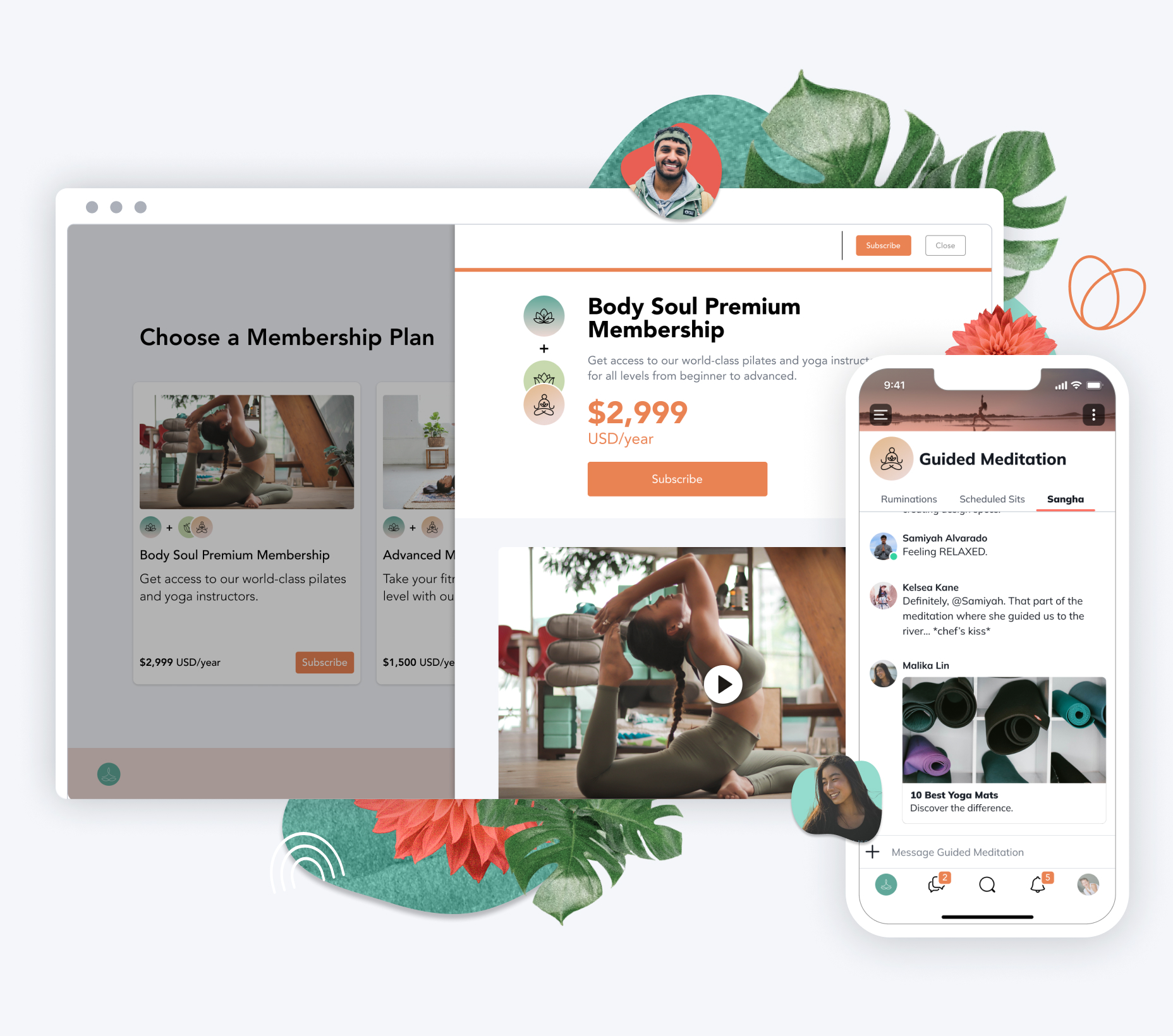
All this happens on a beautiful and responsive app that we build for you. You bring your ideas and your brand and we do the building. We work with you right through to launching your app in the Google Play store and Apple store, but we also stick with you long-term offering support as you need it.
We've built fitness apps for customers like Cristy “Code Red” Nickel, who was trying to run a multi-million dollar coaching company on Facebook. The app was a game-changer, and 78% of all activity in the app is member generated!
You can hear Cristy talk about her journey here.
Last but definitely not least, each Mighty Pro app comes with Mighty Co-Host™ built in. Co-Host™ is the only AI community engine that makes it radically easier to run your community. We’ve incorporated our Community Design™ framework into it, which includes our Infinite Question Engine to prompt community engagement.
If you want to see what you could build with Mighty Pro, schedule a call with us and we’ll walk you through what we could build and how we work.
Mighty Pro pros and cons
Pros
Complete white-label apps (iOS and Android)
Experience building apps for the world’s top creators
High quality community, courses, events, and content apps
More cost-effective than custom development
Run your whole fitness business in one place
Cons
It’s not totally custom development (but works for most fitness use cases)
2. Chetu
Custom development company with fitness experience
Chetu is another option for a fitness app development company. Although they don’t specialize exclusively in apps–they work in custom software development and web development too–Chetu does have a lot of experience developing custom mobile apps for a wide range of use cases. Part of their experience is in building Sports Management and Fitness Software Development solutions.

Chetu has been around for 20 years, and through their app development work, they offer custom development, maintenance, disaster recovery, QA, and more. With a worldwide presence, Chetu advertises themselves as working during “your hours,” offering real time infrastructure management & remote help desk.
Chetu is for brands that want a highly-customized app with completely built-from scratch features and are willing to pay a premium for it. Chetu does completely custom app development, so the projects will be at the highest end of the budget for app development.
Chetu pros and cons
Pros
Totally custom app development
Expertise in a number of verticals
Team of developers around the world
Full service support
Cons
Very expensive
Generalist builders (no specialization in a specific domain)
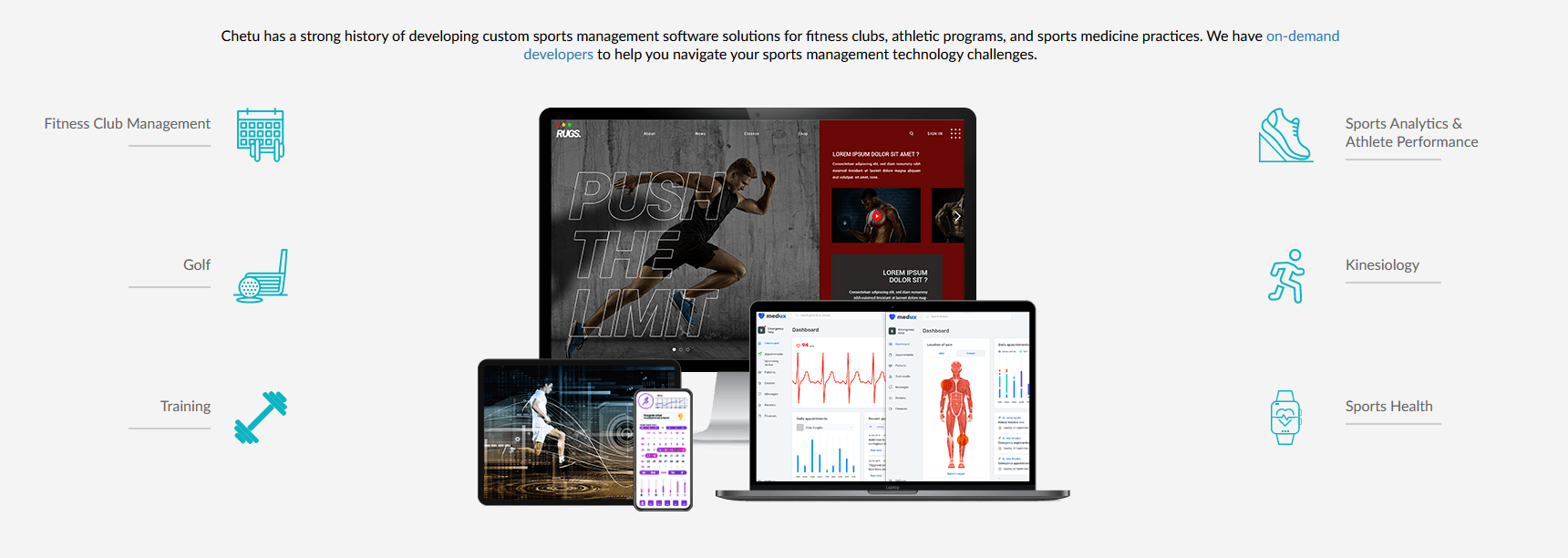
3. Virtuagym
Best for gym management needs
Based in Amsterdam, the Netherlands, Virtuagym offers a personal training platform that can be used by both individuals and personal trainers to create custom training plans, track progress, nutrition, and join a community.
But Virtuagym also offers a lot of different health and fitness technology solutions: things like gym management software, corporate wellness programs, branded apps, and engagement tools for membership.
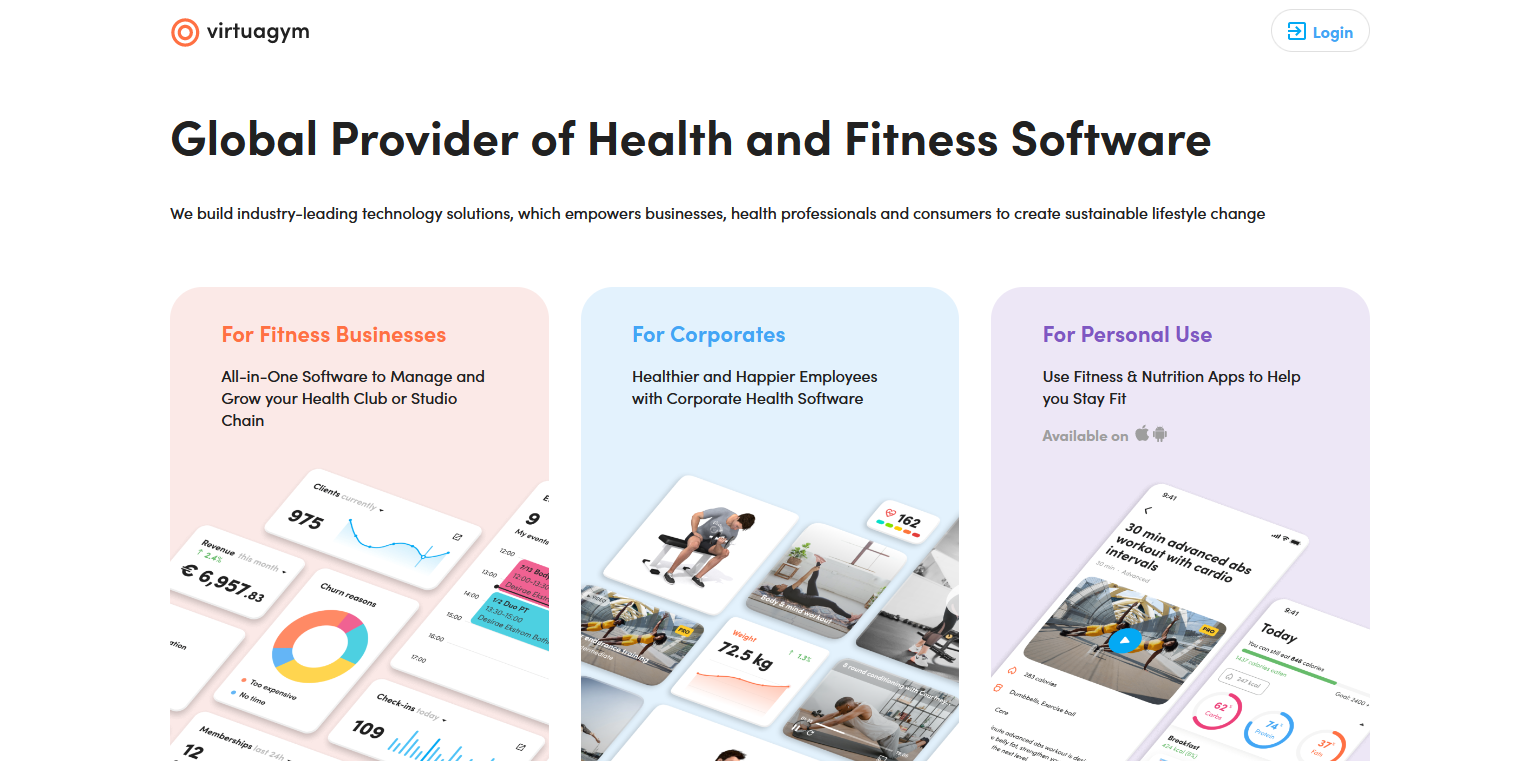
And as part of its offerings, it offers a white-label version of its software and app for personal trainers and coaches. This solution offers things like booking classes, scheduling sessions, digital coaching, and a community option. And you add your own branding to the app to give your clients a customized feel.
Virtuagym is a white-label solution like Mighty Pro, but its app functions are more limited and the design isn’t as customized. This means that Virtuagym is probably the best option for gyms looking for customized management solutions tailored to their needs, while individual fitness instructors, coaches, and influencers would be better served with the community, course, live streaming, and AI functions of Mighty Pro.
Virtuagym pros and cons
Pros
Tools tailored to fitness-business owners and specialized experience in the fitness industry
Multi-platform functions and white-labeling options for mobile apps
Client management and interaction in the apps
Tailor-made tech solutions to gym management needs
Cons
The features are quite basic: a basic community forum, video courses, etc.
Lacks the function of an advanced community solution
A wide range of solutions, but the Virtuagym platform itself is underdeveloped and users have complained about the UX and interface.
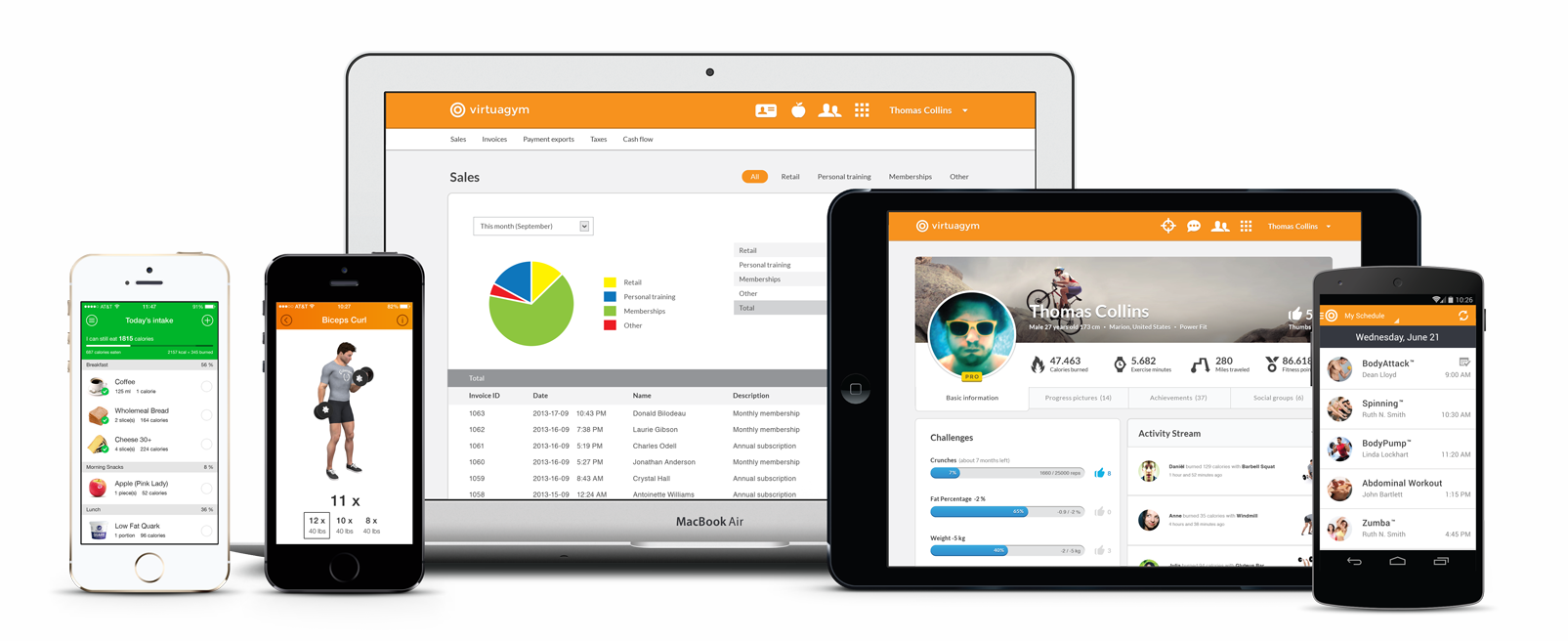
4. My PT Hub
Best for individual personal trainers creating plans for their clients
My PT Hub is an all-in-one web solution and mobile app for personal trainers and gym owners. It gives them a personal training software solution they can use to run a training business and help their clients keep track of their workouts. The app itself has the power to customize a lot of training options, and you can also include nutrition programs and different ways of tracking.
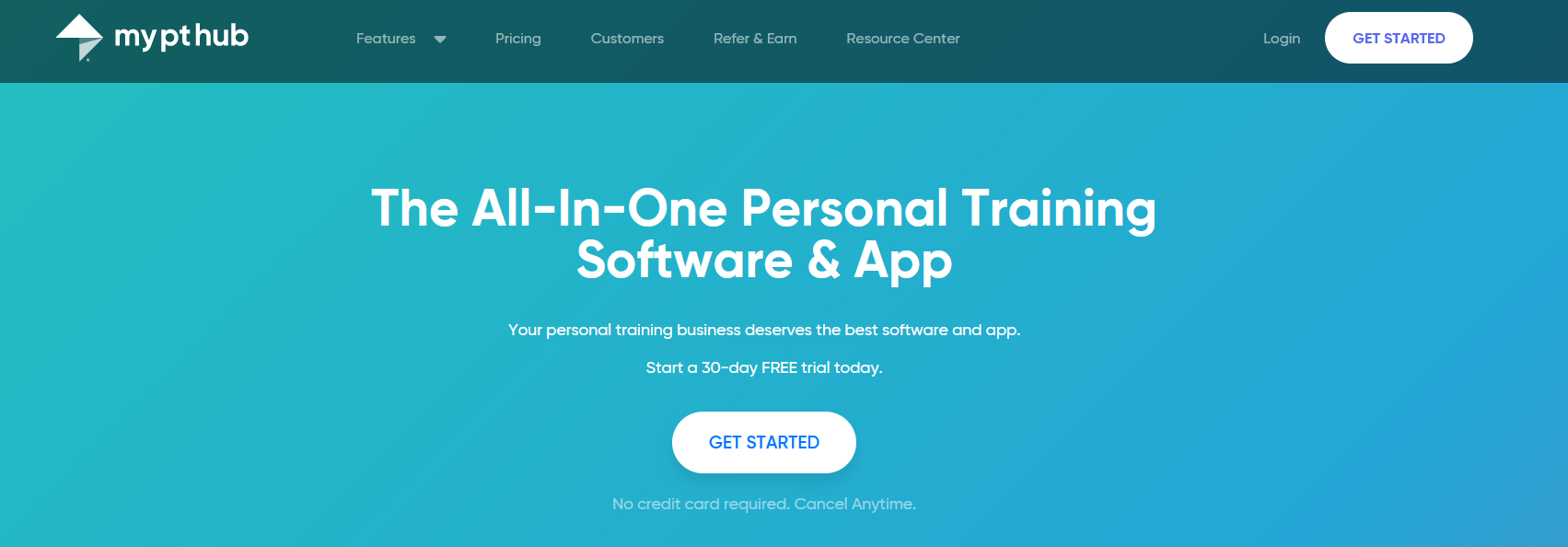
My PT Hub offers existing plans and templates that trainers can use to build their clients’ workouts, and it can be integrated with Apple Health and Fitbit. And the existing nutrition plan helps clients to pull from a database of existing food to track their intake. It also offers a white-label app version of its product so trainers can build on their own brand.
The solution is definitely a fantastic offer for individual coaches and gyms, giving the ability to serve clients 1:1. The biggest limitation is probably scalability; My PT Hub would be great for a fitness practice with limited clients, but isn’t built for the type of scalability some fitness influencers and coaches need. It lacks the features to do things in groups and to promote user generated content and communities.
My PT Hub pros and cons
Pros
Lots of goodies to help a trainer serve their clients (pre-existing workouts, nutrition plans, etc,).
White-label functions and a payment gateway
Features like goal tracking and scheduling
Integration with Apple Watch, Fitbit, etc.
Affordable to get started
Cons
Limited scalability for a fitness brand
Limited customization (beyond adding your own logo)
No community option to help users connect with each other
Users report that the app is clunky, glitchy, and the UX can be confusing
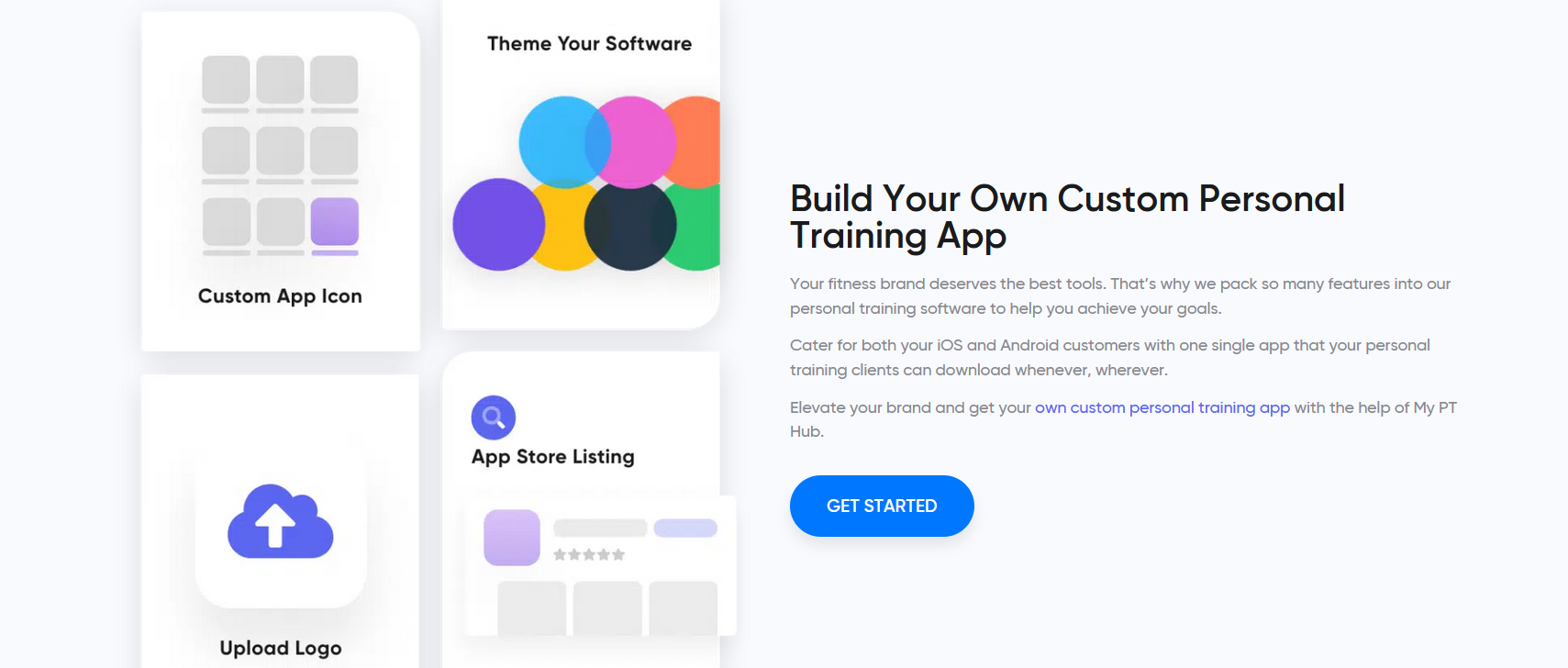
Ready to start?
Whether you run a gym looking for member management, you’re an influencer looking to monetize your following, you’re a high-ticket coach, or you run a small personal training business, there’s something on this list for everyone.
And if you want a powerful fitness app that mixes community, courses, content, and live events come build with us! Mighty Pro replaces all of the apps you’re currently using, giving you one app to run your content, community, monetization, and more. If you listened to Cristy’s story above, you know that people who build on Mighty see an enormous jump in the profitability AND simplicity of your business.
Ready to start building your community?
Start a free 14-day trial to explore Mighty—no credit card required.
More like this
Join Mighty Community
Learn the principles of Community Design™ (and see them in action) alongside thousands of creators and entrepreneurs. It's free to join!

Online Courses
Creating a Course
Teaching a Course
Course Platforms
Selling a Course
Communities & Memberships
Community Platforms
Managing a Community
Building a Community
Growing a Community
Monetizing a Community
Content Creation
Creators & Entrepreneurs
Monetization
Content Creation
Starting a Business
Website Builders
Creating & Managing a Website
Events
Event Platforms
Hosting & Marketing Events
Branded Apps
Creating a Mobile App
Coaching Apps
Community Apps
Coaching
Mastermind Groups
Starting a Coaching Business
Coaching Platforms
Filter by Category
Online Courses
Communities & Memberships
Creators & Entrepreneurs
Events
Branded Apps
Coaching
Start your free trial
14 Days. No Credit Card Required.



